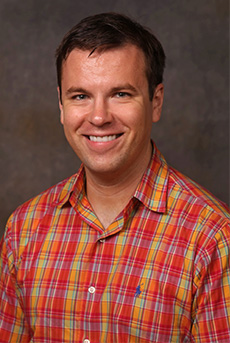 Column A constitutional right to social media?By MARK GRABOWSKI
March 27, 2017
Most Americans know that they can speak their mind in the public square, thanks to the First Amendment. Speech on social media, however, can be censored because private companies own those cyber spaces. But a recent U.S. Supreme Court oral argument suggests Twitter’s practice of banning controversial right-wing pundits could be deemed illegal. During a Feb. 27 hearing involving the constitutionality of a state social media law, Justice Anthony Kennedy said that Twitter and Facebook had become, and even surpassed, the public square as a place for discussion and debate. “Their utility and the extent of their coverage are greater than the communication you could have ever had, even in the paradigm of public square,” he said while hearing arguments in Packingham v. North Carolina. A majority of justices agreed. “The President now uses Twitter … everybody uses Twitter,” observed Justice Elena Kagan. “All 50 governors, all 100 senators, every member of the House has a Twitter account. So this has become a … crucially important channel of political communication.” Although justices’ comments pertained to whether North Carolina may bar registered sex offenders from using social media, the case could herald a broader expansion of digital liberties by a court that’s often mocked for being behind the times. While there may be a free speech issue when a state government bans individuals from using social media, it would seem that there is no such issue when Twitter does the same because the First Amendment applies only to government actors. However, the justices’ shockingly forward-looking views open a potential game-changing loophole. Long ago, the high court established that state constitutions may provide more protection than the U.S. Constitution when it comes to free speech — including the extension of rights to privately-owned spaces. In 1980, in Pruneyard Shopping Center v. Robins, the U.S. Supreme Court affirmed a California Supreme Court decision recognizing that California’s Constitution protected the right of high school students to gather signatures at a privately-owned shopping center for a petition objecting to a United Nations resolution that said Zionism was a form of racism. Driving the California court’s reasoning was a concern that traditional public squares — the old “Main Street” — were giving way to privately-owned businesses. Consequently, the speech rights that Californians enjoyed in these public Main Street spaces would greatly diminish if a town’s center of gravity shifted to a mall and its owners were able to restrict speech because it’s on private property. In the four decades since that landmark ruling, social media has become society’s modern day public square. Think about it: If I were in the shoes of those California students today and wanted to maximize the number of signatures I got for such a petition, I’d first put it online, and then I’d tweet it to various pro-Israel politicians, celebrities and others with a large number of followers who could easily retweet it and thereby broadcast it to millions of people. During the Supreme Court’s recent hearing on North Carolina’s law, justices acknowledged this shift. Justice Ruth Bader Ginsburg said restricting social media access is dangerous because “these people are being cut off from a very large part of the marketplace of ideas. And the First Amendment includes not only the right to speak, but the right to receive information.” Kagan agreed. “Whether it’s political community, whether it’s religious community … these sites have become embedded in our culture as ways to communicate and ways to exercise our constitutional rights,” she said. “How many people under 30 do you think don’t use these sites to get all their information? Under 35? I mean, increasingly, this is the way people get everything, all information.” Justice Samuel Alito added: “I know there are people who think that life is not possible without Twitter and Facebook.” To be clear, the justices’ discussion concerned a very different issue than the one raised by Pruneyard. But their comments indicate a majority might be open to expanding the definition of what constitutes a public forum where people are free to speak their minds. And, given that many of the most popular social networks are headquartered in and physically exist on server space located in California, it could be argued that the Pruneyard precedent should apply. If a shopping center, with its piddling 25,000 visitors per day can’t restrict political speech, then Twitter and Facebook, with their hundreds of millions of daily visitors, shouldn’t be able to either. Like the mall’s owner, social media companies surely won’t stop infringing on their visitors’ speech rights without a fight. But if Twitter continues down its censorious path, it might find itself in court — and lose.
Mark Grabowski ©2017 Mark Grabowski is a law professor and former political journalist who regularly writes on current events.
|
|||
SitNews ©2014
Stories In The News
Ketchikan, Alaska
Contact the Editor
